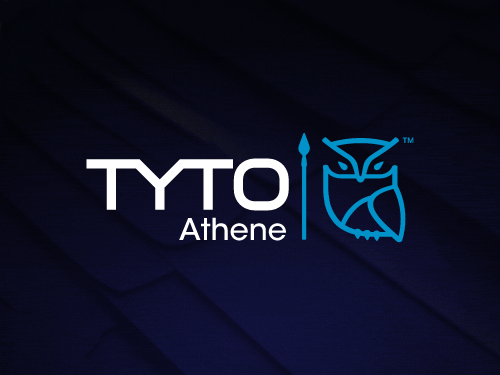In the fast-paced world of private equity, adaptability is key to success. The ability to pivot quickly in response to market changes, emerging trends, and evolving customer demands can make all the difference in achieving high returns on investment. Agile marketing strategies, characterized by their flexibility, responsiveness, and iterative approach, are becoming increasingly vital for driving private equity success. At Bluetext, we have seen firsthand how agile marketing can transform portfolio companies and enhance overall performance. In this blog post, we will explore the principles of agile marketing, its benefits, and how it can be effectively implemented to drive private equity success.
The Principles of Agile Marketing
Agile marketing borrows principles from agile software development, emphasizing collaboration, flexibility, and continuous improvement. Here are the core principles that define agile marketing:
- Customer-Centric Focus: Agile marketing prioritizes the needs and preferences of customers. By continually gathering and analyzing customer feedback, marketing efforts can be adjusted to better meet customer expectations.
- Iterative Processes: Instead of long-term campaigns, agile marketing breaks projects into smaller, manageable tasks or “sprints.” This allows for quick adjustments based on real-time results and feedback.
- Collaboration and Transparency: Agile marketing encourages collaboration across teams, ensuring that all stakeholders are aligned and informed. Regular meetings and updates promote transparency and collective problem-solving.
- Flexibility and Responsiveness: Agile marketing strategies are designed to be flexible, enabling rapid responses to market changes, competitor actions, and new opportunities.
- Data-Driven Decision Making: Continuous testing and data analysis are at the heart of agile marketing. Decisions are based on empirical evidence, leading to more effective and efficient marketing strategies.
Benefits of Agile Marketing for Private Equity
Adopting agile marketing strategies offers several key benefits for private equity firms and their portfolio companies:
- Enhanced Market Responsiveness: Agile marketing allows portfolio companies to quickly adapt to changing market conditions, ensuring they stay ahead of competitors and capitalize on new opportunities.
- Improved ROI: By continually testing and refining marketing tactics, agile marketing ensures that resources are allocated to the most effective strategies, maximizing return on investment.
- Faster Time-to-Market: Agile marketing’s iterative approach means that new campaigns and initiatives can be launched more quickly, allowing portfolio companies to respond swiftly to emerging trends and customer needs.
- Better Alignment with Business Goals: Regular collaboration and communication ensure that marketing efforts are closely aligned with the broader business objectives of the portfolio companies, driving cohesive and focused growth.
- Increased Customer Engagement and Satisfaction: A customer-centric approach ensures that marketing strategies are designed to meet customer needs and preferences, leading to higher engagement and satisfaction rates.
Implementing Agile Marketing in Private Equity
To effectively implement agile marketing strategies, private equity firms should consider the following steps:
- Establish Cross-Functional Teams: Create teams that include members from marketing, sales, product development, and other relevant departments. This ensures diverse perspectives and better collaboration.
- Define Clear Objectives and Metrics: Set specific, measurable goals for marketing initiatives. Use key performance indicators (KPIs) to track progress and evaluate success.
- Adopt Agile Tools and Techniques: Utilize agile project management tools such as Kanban boards, Scrum, and sprint planning to organize and manage marketing activities.
- Foster a Culture of Continuous Improvement: Encourage teams to regularly review their performance, learn from successes and failures, and continuously seek ways to improve.
- Leverage Data and Analytics: Invest in robust analytics tools to gather and analyze data. Use insights to make informed decisions and adjust strategies as needed.
The Future of Agile Marketing in Private Equity
As the private equity landscape continues to evolve, the importance of agile marketing will only grow. Here are some trends to watch:
- Integration with Advanced Technologies: The use of artificial intelligence, machine learning, and automation will further enhance the capabilities of agile marketing, enabling more precise targeting and efficient campaign management.
- Greater Emphasis on Personalization: Agile marketing will increasingly focus on delivering personalized customer experiences, leveraging data to create tailored marketing strategies.
- Expansion of Agile Practices Beyond Marketing: The principles of agile marketing may be applied more broadly across organizations, fostering a culture of agility and continuous improvement in all areas of business.
Conclusion
Agile marketing strategies are essential for driving success in the fast-moving world of private equity. By enhancing market responsiveness, improving ROI, and fostering customer engagement, agile marketing creates a powerful ripple effect that benefits portfolio companies and investors alike. At Bluetext, we are committed to helping private equity firms and their portfolio companies harness the power of agile marketing to achieve their strategic goals.
If you’re ready to transform your marketing approach and drive private equity success, contact us at Bluetext. Together, we can adapt to change and achieve remarkable growth.



